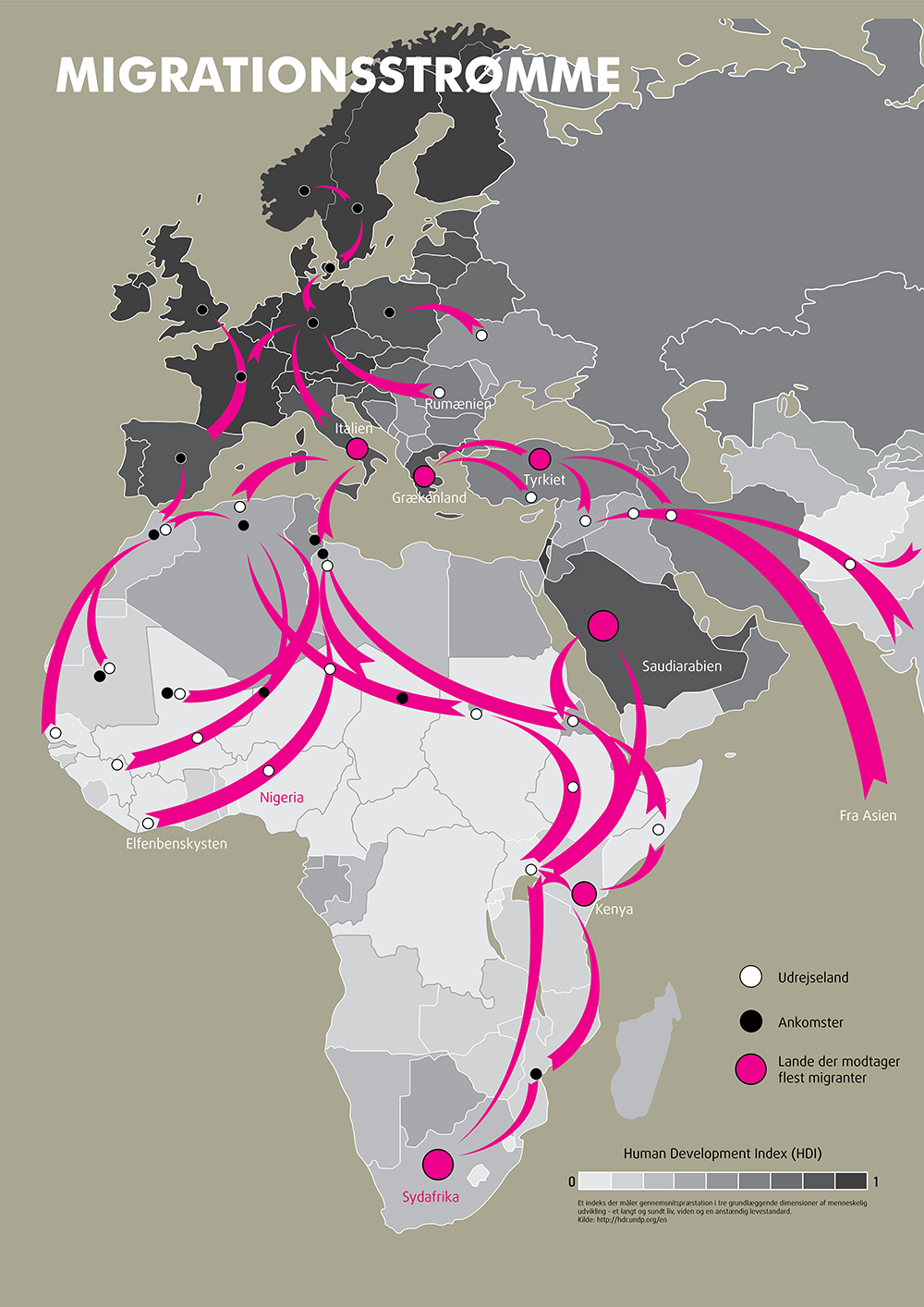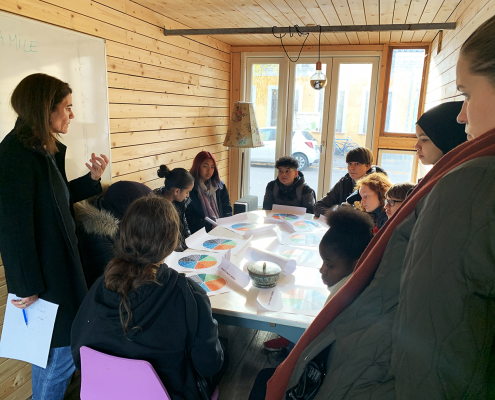Voices from the South
Change communication and empowerment
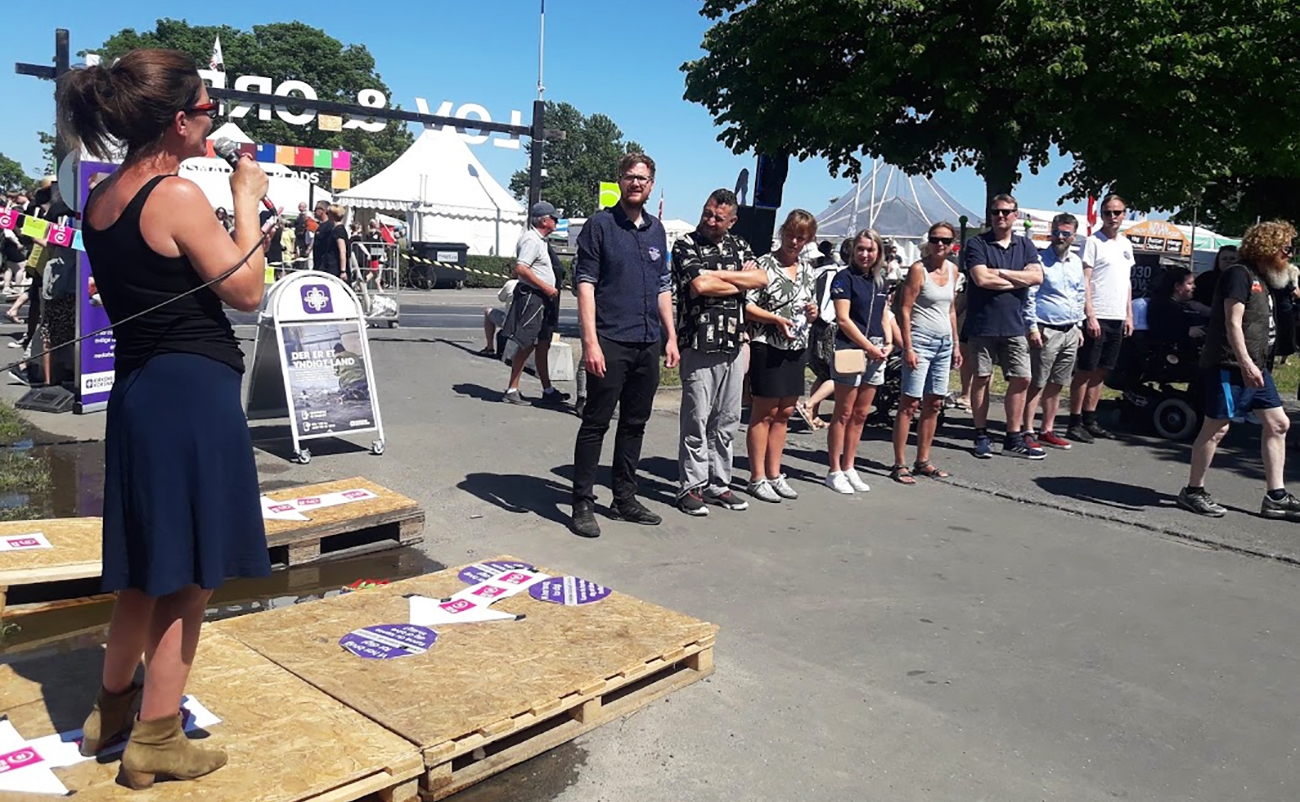
Privilege Walk ved People’s Democratic Event, Folkemødet 2019
For the past three years, Social Cities and Kirkens Korshær Copenhagen have worked with cultural and information work particularly focused on making their centres more than refugiums, and thus also places where schools and students, architects and sociologists can acquire learning and reflections on, how we should organise our society under new global development conditions. The shelter Kompasset in Copenhagen NV is, by its very nature, an obvious place to create a framework for the narrative that people are resources regardless of their circumstances and life situation, and that we live in a globally connected world, where it is incumbent upon us to jointly engage, include and organise opportunities to everyone.
Homelessness and poverty are a frequent consequence of migration. Poverty, inequality, human rights abuses and climate change affect migration across the globe. In Denmark, the NGOs are experiencing a growing expectation that they will come up with sustainable solutions for the inclusion of migrants in society.
In partnership with Kirkens Korshær Copenhagen and CISU, we have developed change communication and methods aimed at pupils, students and civil society to reformulate the concept of global migration and social ethics. This means communicating the positive effect of empowering people and their life situations, and that we live in a globally connected world where shared responsibility is central. It also means understanding the connection between migration and social inequality and what can be done to prevent social inequality – this may involve establishing networks, integrating culture, art and local stories where people meet on equal terms.
Strengthening the awareness and commitment among EU citizens in relation to the global goals
SDG 10 proposes a series of considerations and themes which, in learning and educational contexts, can be translated into greater reflections on how we organise our society and increasingly push the definition of poverty by distinguishing between the ability to be resilient and the ability to hang on to speed and money earnings with high consumption.
As part of this project, we have prepared educational materials, including a map of places in Copenhagen that help open their doors to vulnerable unregistered migrants. Based on this mapping, we have created the exhibition “Copenhagen – an inclusive or exclusionary city?” to the People’s Democratic Event. The exhibition consisted of panels, facilitated workshops and ‘privilege walks’ where festival-goers had to feel the prejudices of the surrounding society on a number of questions about personal and random circumstances in life.
Later we did a series of informative workshops and exercises for school classes from Nørrebro in Copenhagen with a visit to a migrant crisis centre and exploration of Shalom Schwartz’s Wheel of Values.
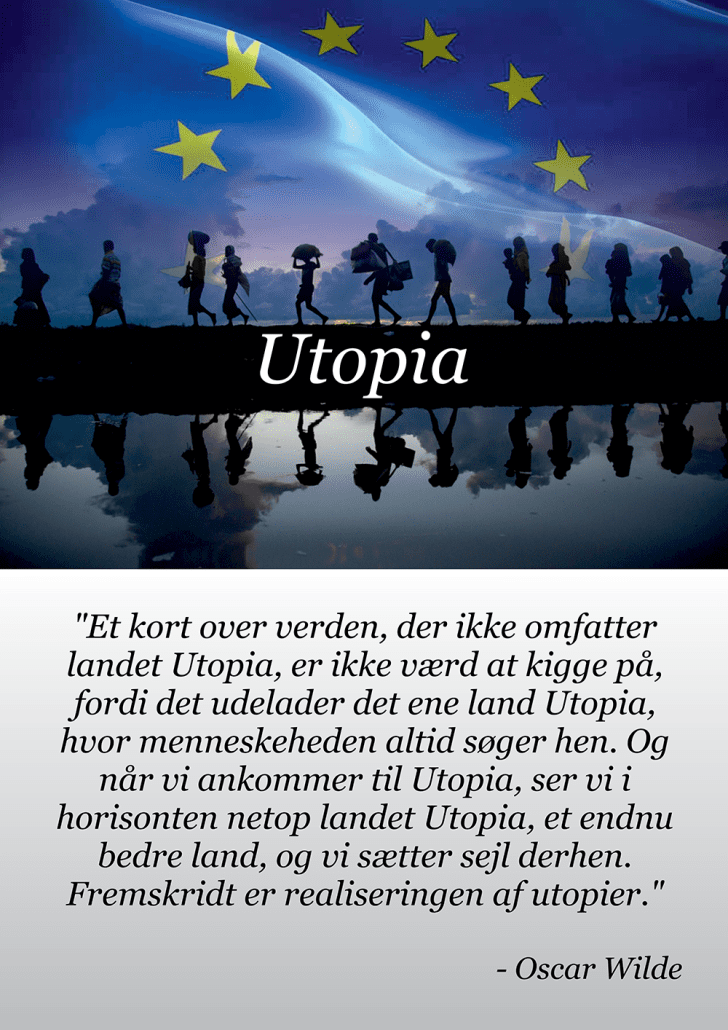
“Et kort over verden, der ikke inkluderer Utopia, er ikke værd at kigge på, for det udelader det ene land, hvor menneskeheden altid lander. Og når menneskeheden lander der, kigger den ud, og når den ser et bedre land, sætter den sejl. Fremskridt er realiseringen af utopier.”
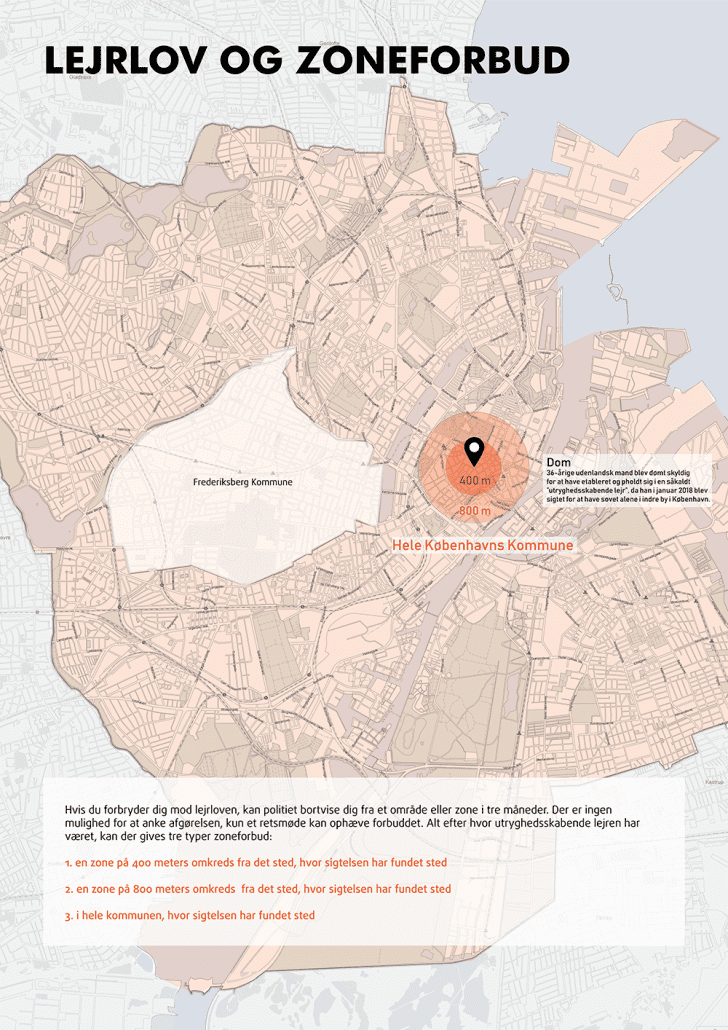
Et kort, der illustrerer “lejrloven og zoneforbud”. Hvis du bryder lejrloven (det betyder at etablere et sovested med ejendele, der kan få folk til at føle sig utrygge), kan politiet bortvise dig fra et område eller en zone i tre måneder. Der kan nedlægges 3 typer zoneforbud: 1. En zone på 400 meters omkreds fra det sted, hvor opkrævningen har fundet sted 2. En zone på 800 meters omkreds fra det sted, hvor opkrævningen fandt sted 3. Hele kommunen, hvor sigtningen har fundet sted.


